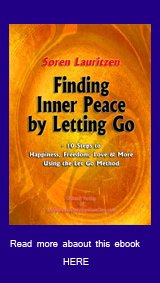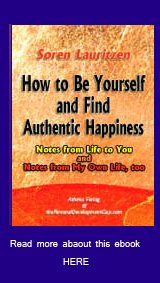Carl Rogers And Humanistic Psychology
Carl Rogers is considered one of the most influential psychologists in the world.
His teachings on humanistic psychology and his person-centered approach to therapy and education helped shape the world of psychology as we know it today.
He wrote several personal development books and hundreds of professional papers
during his career.
The Background Of Carl Rogers
Carl Rogers was born in Oak Park, Illinois near Chicago on January 8, 1902. He lived to the age of 85 and died on February 4, 1987.Rogers was a very bright child and was able to read before he even began kindergarten. He was raised in a strict and isolated environment, and as such became a disciplined and independent person at an early age.
He had a love of science and using the scientific method for practical applications. His first area of study was agriculture at the University of Wisconsin. He later switched to history, and then to religion. But after taking a trip to China, he began to have doubts about his religious beliefs and eventually decided to switch careers again, this time settling on teaching.
While working on his teaching degree, he delved into child study, and found his true calling. He worked with troubled children, lectured on his experiences, and later wrote a book on the subject.
Carl Rogers went on to specialize in psychology and became a professor of clinical psychology at Ohio State. He set up a private counseling practice where he conducted research and devised new methods for helping his patients.
He received much acclaim and prestigious awards such as the Award for Distinguished Scientific Contributions to Psychology, Award for Distinguished Contributions to Applied Psychology as a Professional Practice, and Humanist of the Year.
Theories Of Carl Rogers
Carl Rogers is ered one of the founders of humanistic psychology. Humanistic psychology teaches that people are inherently good and it encompasses a holistic approach to the development of the personality by looking at things such as human potential, spirituality, free will, and creativity.Carl Rogers felt if the natural developmental processes unfolded as they should, the personality would be creative and self-actualized. Rogers took the person-centered approach when counseling patients and teaching students in an effort to allow full development of the personality.
His self help advice and books also fall under the category of humanistic psychology. Self help groups and other forms of therapy such as co-counseling are humanistic as well since they seek to create more positive experiences and reduce the negative in order to mold a more fulfilling life.
His approach towards psychology was based on 19 principles.
1. Everyone exists in a constantly changing set of experiences at which they are the center. This theory is called phenomenological psychology.
2. People react to the set of experiences as they happen and as they are perceived. These experiences are reality for the individual.
3. An individual reacts in a holistic manner to this set of experiences also called the phenomenal field.
4. A portion of the field eventually becomes differentiated into the self.
5. The result of interaction with this field and other people is the formation of the self as an organized conception of the relationship between the self and the values attached to the events.
6. A person has one driving tendency and that is to actualize and enhance his life experience.
7. The internal perspective of an individual is the best vantage point for understanding his behavior.
8. Behavior of an individual is his attempt to satisfy his need for experience within his field of perception.
9. Emotion guides this behavior and is proportional to the behavior's perceived significance.
10. Values that are attached to a person's experiences are sometimes taken from others as if they were experienced directly, and can become distorted.
11. Experiences are symbolized, ignored, or distorted.
12. Most behaviors adopted however, are consistent with the person's concept of self.
13. In some cases, behaviors are brought about when they haven't been symbolized and these can be inconsistent with the idea of the self and therefore the behavior isn't owned by the person.
14. A person is psychologically adjusted when his experiences and symbols are consistent with his concept of self.
15. A person is psychologically maladjusted when his experiences are not symbolized and consistent with his self concept. This creates a form of psychological tension.
16. When these inconsistent experiences occur, they are often perceived as a threat, and a person becomes more rigid in his self structure for protection.
17. Under the proper conditions, with the threats removed, a person can examine these inconsistencies and assimilate them properly.
18. When a person has properly integrated his experiences, he becomes more aware of himself and more understanding and accepting of other people.
19. As a person examines his experiences, removes distorted symbols, and accepts them into his concept of self, he constantly evolves his value system.
Books By Carl Rogers
"Clinical Treatment of the Problem Child" was written in 1939. Carl Rogers wrote this book after working extensively with troubled children. The book relates his experiences and offers advice on treating such children using the psychological methods he devised. "Client-centered Therapy: Its Current Practice, Implications and Theory" was originally published in 1951 and introduced the psychology profession to the idea of humanistic psychology and the ability of the patient to benefit from self help methods of therapy.
"On Becoming a Person: A Therapist's View of Psychotherapy" was first published in 1961. It was republished with commentary by Peter Kramer M.D. in 1995. In this book, Carl Rogers explains his concept of client-centered therapy. This book speaks to professionals such as psychologists and counselors and is also an informative read for individuals seeking a deeper look into themselves.
"Freedom to Learn: A View of What Education Might Become" was published in 1969. It was written with the goal of helping children and young people develop a love of learning. In it, Carl Rogers offered practical advice to teachers and school administrators for dealing with issues such as discipline, classroom management, and child-centered learning.
"On Personal Power: Inner Strength and Its Revolutionary Impact" was published in 1977. This is one of the personal development books by Carl Rogers that was targeted to the average person seeking self help advice. In it, Rogers explores his person-centered theories and discusses how to build better relationships that create a mystical and peaceful world for all earth's inhabitants.
"A Way of Being" was published in 1980 towards the end of Roger's career. It sums up his lifelong belief in humanism and calls upon all readers to help create a more humane future for all people. This work by Carl Rogers is more philosophical than his other personal development books and reflects back on his decades of helping people reach their full potentials.
The Legacy Of Carl Rogers
The writings of Carl Rogers continue to be expanded, compiled, and republished with commentary, many years after his death.He left a lasting impact on those in the field of personality development, psychological treatment, and human potential.
He was one of the first professionals to mix psychology with spirituality, and treat his clients holistically. His books continue to inspire new generations of personal development enthusiasts, and his methods are regaining popularity as treatments in psychology swing back from 'instant cures' to more holistic approaches.
The Personal Development Guy's Self Improvement Ezine (FREE)
Would you like to keep in touch - and get high-level tips and special bonuses? Then please sign up for my self improvement newsletter The Personal Development Guy's Self Improvement Ezine. It is totally FREE.
I LOVE Your Support
If you've found the free personal development content on this website useful, please click the Donate button. Your donation will help me to keep producing free, high-level self improvement information. I am VERY GRATEFUL for your support!
Inspirational Quotes, Poems and Funny Short Stuff
If you want, you can also get your personal development, spirituality and general wisdom in an ultra light version - or even add your own wisdom to the site. Just go to the other sister of this website at:
- World's Best and YOUR Best Quotes, Poems and Short Funny Stuff
Quotescoop.com is also known as:
(http://www.inspirational-quotes-short-funny-stuff.com).
High-Level Positive Parenting Advice and Deep Insights
Positive Parenting Ally is the parenting equivalent of the Personal Development Guy. This is where you go if you want really deepen your understanding of parenting, empower your kids and make everyday life more easy and joyful.
Positive-Parenting-Ally.com
- Parenting advice for the conscious, open-minded parent!
Back to the top of this page about Carl Rogers And Humanistic Psychology
Where Would You Like to Go Next?
To see what has been added to this site recently (plus offers, etc.), check out Blog & News at thePersonalDevelopmentGuy.comTo share your own short self improvement ideas, tips, musings, quotes, stories, spiritual jokes, etc. (and read the short ideas, etc. others have shared) jump to Shared Blog: Self Improvement Ideas
Jump to the Personal Development Guy Homepage
Jump to Self Help Books.
List of articles about self help books listed alphabetically: Alfred Adler, Barbara De Angelis, Maya Angelou Biography, Arjuna Ardagh, Richard Bandler, Brandon Bays, Alain de Botton, Gregg Braden, Brene Brown, Les Brown, Leo Buscaglia, Tony Buzan, Andrew Carnegie Biography, Carlos Castaneda, Pema Chodron, Deepak Chopra, Deepak Chopra Books Paulo Coelho, Stephen Covey, Peter Drucker, T. Harv Eker, Masary Emoto, Timothy Ferriss, Debbie Ford, Viktor Frankl, Mahatma Gandhi, Gangaji, Shakti Gawain, Kahlil Gibran, Daniel Goleman, Amit Goswami, Alex Grey, Stanislav Grof, David Hawkins, Louise Hay, Hermann Hesse, Esther Hicks and Jerry Hicks, Napoleon Hill, Susan Jeffers, C G Jung, Jon Kabat-Zinn, Byron Katie, Robert Kiyosaki, Bruce Lipton, Ramana Maharshi, J W Marriott, Abraham Maslow, John Maxwell, Drunvalo Melchizedek, Anthony de Mello, Anthony De Mello Quotes, Dan Millman, Bruce Moen, Robert Monroe, Michael Newton, Daniel Pink, Dave Ramsey, Ayn Rand Books, James Redfield, Cheryl Richardson, Anthony Robbins, Anthony Robbins Books Carl Rogers, Jim Rohn, Marshall Rosenberg, Geneen Roth, Don Miguel Ruiz, Robin Sharma, Barbara Sher, George Soros Biography, George Soros Quotes, Eckhart Tolle, Brian Tracy Books, Neale Donald Walsch, , Joe Vitale, Lyall Watson, Alan Watts, Stuart Wilde, Marianne Williamson, Larry Winget, Gary Zukav, Best Self Help Books, Self Help Books for Women,







